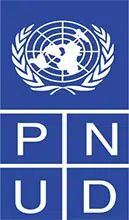 The concept of human development can refer to two different issues. On the one hand, it is linked to the improvement of the living conditions of human beings through the satisfaction of their needs. On the other hand, it can refer to development in the biological sense, from conception to birth or adulthood.
The concept of human development can refer to two different issues. On the one hand, it is linked to the improvement of the living conditions of human beings through the satisfaction of their needs. On the other hand, it can refer to development in the biological sense, from conception to birth or adulthood.
Staying with the first of the mentioned meanings, the idea of human development is associated with the availability of resources to satisfy material needs and the formation of an environment that allows the individual to exploit their potential. The greater human development, the better quality of life .
Working for human development consists of expanding people's opportunities and options to progress and increase their well-being. The various aspects linked to human development are usually measured through the Human Development Index ( HDI ).
The HDI analyzes life expectancy, years of schooling and GDP per capita of the inhabitants of each country and establishes an international ranking. Norway , Switzerland , Australia , Germany and Denmark tend to be the nations with the highest HDI.
In 1965, the so-called United Nations Development Programme , abbreviated UNDP , was created after merging the Expanded Program of Technical Assistance and the Special Fund, which emerged in 1949 and 1958, respectively. The UNDP was launched by the General Assembly and its objective is to promote improvement in the quality of life of the people who make up this system. Precisely, the report called IDH is a publication of this program.
The UNDP is active in 178 countries, and its main function is to collaborate with people so that they can achieve a higher standard of living . To promote this improvement, it provides them with the knowledge, resources and experience they need. Every country faces different challenges , and UNDP helps them create and share strategies to overcome them.
 Among these challenges are the following: reduction of the poverty rate; democratic governance; prevention of crises and recovery after them; use of energy and care of the environment ; infectious diseases and epidemics; access to communications and information technologies; fight against illiteracy; end discrimination against women.
Among these challenges are the following: reduction of the poverty rate; democratic governance; prevention of crises and recovery after them; use of energy and care of the environment ; infectious diseases and epidemics; access to communications and information technologies; fight against illiteracy; end discrimination against women.
For a country to be able to give rise to the human development of its inhabitants, it is necessary to resolve the points expressed in the previous paragraph, among others, and that is why it is a difficult task, which always leaves a percentage of people outside of progress. Democratic governance is one of the most important, since it seeks through democracy to create processes and institutions that respond to the needs of the people more effectively.
If we do not have access to public administration and justice, if we cannot participate in the electoral processes and legislative decisions of our nation, then we are not fundamental components of society but merely pieces that others must move at will. Human development implies the idea of freedom , so that each person moves through their environment as an authentic individual, even though they are part of a larger whole that represents them.
Regarding biology , human development begins with fertilization , when a female gamete fuses with a male gamete and a new individual emerges, whose genome comes from the two parents. This zygote grows in the mother's womb as a fetus for nine months until the time of delivery arrives. Once birth is completed, the human being continues its development until reaching maturity and becoming an adult.
